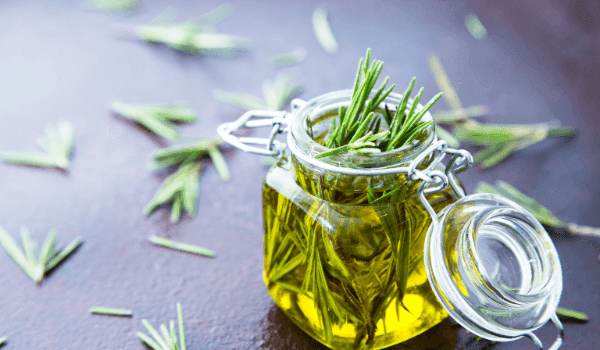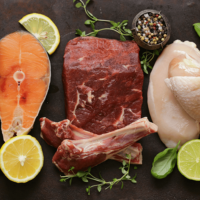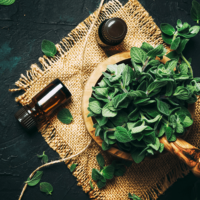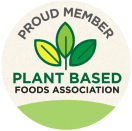A&B Ingredients Offers Next-Generation Antioxidants To Meet The Clean Label Trend

The holistic approach to health and wellness has climbed to the top of consumer trends since the COVID-19 pandemic. People are more concerned about their health now and seek natural solutions to support their well-being. It also makes people reevaluate their food choices based on their nutritional and health benefits.
Eating healthy is now a top priority for 63 percent of Americans surveyed by the U.S. Department of Agriculture's Supplemental Nutrition Assistance Program (SNAP). As a result, the demand for natural, wholesome, nutrient-rich foods is increasingly growing. More and more consumers are switching to clean-label foods because such foods are made from natural, clean ingredients and are free from artificial and unwanted ingredients.
The food industry has to innovate to meet the consumer demand for natural, clean-label products. One of the challenges that food formulators face is designing foods that taste good and are free from synthetic ingredients, including preservatives and antioxidants. Food companies need natural solutions to preserve food quality, control oxidation and deliver on the promise of a clean label.

What Is Oxidation?
Oxidation is a common problem in food manufacturing that leads to loss of product quality and negatively affects the shelf life and product appeal. Products that contain fats and/or oils, like meat, poultry, fish, cooking oils, sauces, creamers, fried snacks, and baked goods are prone to oxidation.
Oxidation occurs when products come in contact with oxygen in the air. As lipid material (fat) in food undergoes oxidation reactions, products may change color, produce off-odors, and develop unhealthy compounds. As a result, such products lose their appeal due to the stale condition caused by oxidation. Therefore, the control and minimization of oxidation are important in the food industry.
Controlling Oxidation In Food And Beverage Products
Antioxidants are widely used to prevent oxidation and help extend the shelf life of F&B products. Antioxidants can slow down the rate at which oxidation occurs by terminating the oxidation chain reactions.
Traditionally, manufacturers used synthetical antioxidants to keep foods fresh. Lately, the demand for natural antioxidants has increased amid the growth of the natural and clean-label food and beverage industry.
Demand For Natural Solutions In Oxidation Control Is Growing
Synthetic antioxidants are popular preservatives because they are cost-effective and efficient at controlling oxidation. In 2020, synthetic antioxidants' market share was around 60 percent of the global antioxidant market sales.
However, multiple studies have shown that synthetic additives like TBHQ and other food chemicals might be harmful to our health and immune system. In 2021, U.S. Senator Kirsten Gillibrand called on FDA to investigate the potential harm of consuming preservative tert-butyl hydroquinone (TBHQ).
TBHQ and other synthetic antioxidants are strictly controlled by the FDA, including the product's labeling. The recently discovered harmful effects of artificial preservatives fuel the demand for natural antioxidants to be used in food, cosmetics, and nutraceutical products. Modern-day consumers have plenty of choices when buying food and beverage products, and they are increasingly seeking products with simple labels, short ingredient lists, and made without artificial preservatives.
"The clean label trend in the food and beverage industry calls for a redesign of a food system using natural ingredients to replace any synthetics in the formulation. Food manufacturers can replace synthetic preservatives with clean-label antioxidants made from natural, recognizable sources to produce healthier products and meet consumers' demand for clean-label foods. Our latest CytoGUARD natural antioxidant technology is a major breakthrough in natural oxidation control. Results to date are very encouraging as a natural TBHQ alternative in oils. Our solutions are label-friendly and meet the consumer demand for natural ingredients," said Joe O'Neill, VP of Sales and Business Development at A&B Ingredients.
Next-Generation Antioxidants For Oxidation Control
A&B Ingredients provides clean-label solutions to address oxidation in food manufacturing.

Since 2006, A&B Ingredients has worked on developing next-generation antioxidants to solve oxidation challenges naturally. We have spent years researching and identifying natural extracts with extraordinary potential to control oxidation and keep foods fresh. CytoGUARD® antioxidants provide a clean-label solution that maintains food quality over shelf life.
"Extracts from natural sources, like oregano, jasmine tea, and Mediterranean spices, offer effective antioxidant benefits and attractive labeling. When using natural antioxidants, manufacturers can purposefully call out the ingredient's source, like jasmine tea extract, to create a more appealing ingredient statement," explained O'Neill.
Advantages of partnering with A&B Ingredients for clean-label oxidation control:
- A&B Ingredients is a leading manufacturer of natural antioxidants
- CytoGUARD® antioxidants are unique and powerful plant extracts
- A&B Ingredients has extended expertise in the use and application of natural antioxidants in various food products
- A&B Ingredients offers technical support and antioxidant research laboratory capabilities
The pandemic has fueled the clean-label food trend. Formulating with natural and clean-label ingredients can help food manufacturers design foods that meet the needs of today's health-conscious consumers. A&B Ingredients provides effective clean-label solutions based on natural plant extracts to solve current and future oxidation challenges.
How Can We Help?
We are here to help you with development of new and improved food products. Our technical service and sales teams can assist you in choosing the right ingredients best suited for your applications.
Product CatalogContact Us
